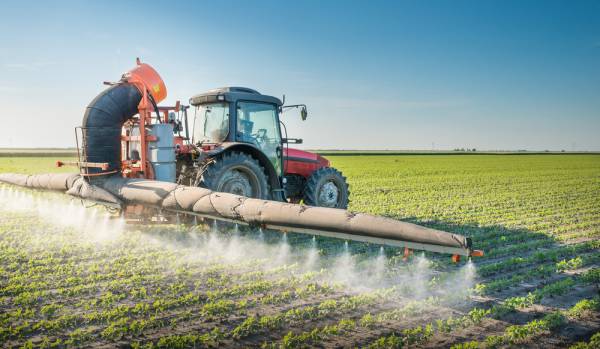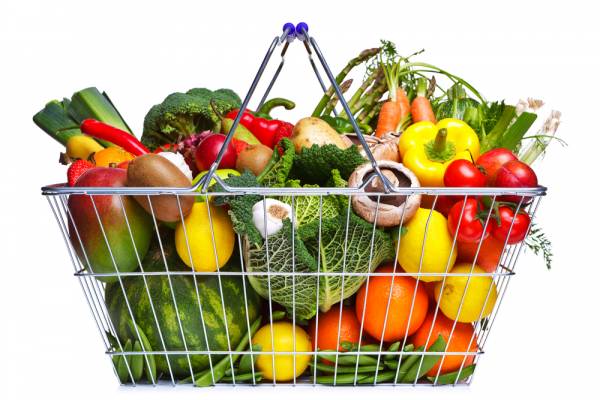“Should I really be buying organic fruits and veggies, or is it a scam?” This is one of the most common questions I hear from people. But it’s certainly not the only question on this topic.
The organic food industry has grown bigger and bigger, yet so many people continue to be confused by the industry, the word, and what it does and doesn’t mean. Hopefully I can clear up some of these issues and help you make a more informed decision as to whether organic foods are worth your extra dollars.
Can Processed Food Be Organic?
Let’s get one thing out of the way. There are a lot of heavily processed foods with the “organic” label on the front of their packages. While they may contain between 70-100% organic ingredients, processed food is still processed food. These foods are not optimal for nutrition, so there’s really not much of a difference if the processed food you’re eating is organic or not.
I always advocate for the inclusion of as many whole foods in our diets as possible, so for the purpose of this article, I’m going to be exclusively addressing whole produce and minimally-processed packaged foods.
What Does “USDA Organic” Mean?
According to the USDA website:
Certified organic foods are grown and processed according to federal guidelines addressing, among many factors, soil quality, animal raising practices, pest and weed control, and use of additives…Produce can be called organic if it’s certified to have grown on soil that had no prohibited substances applied for three years prior to harvest.
Sounds good right? But who is enforcing these rules and are there any factors that may corrupt the system?
According to Kip Pastor’s award-winning documentary, In Organic We Trust, the term “certified organic” has become a marketing tool. What was once a grassroots movement has become a thirty billion dollar corporate industry. Because the certified agents responsible for ensuring organic farmers are utilizing proper practices charge farmers additional money to retain their organic label, these agents are essentially incentivized to preserve organic certification even if a farm is cutting corners and not quite meeting standards.
But despite the drawbacks, Pastor comes out in favor of organic foods in his documentary, and I agree with him. Surely there are some significant flaws in the system, but that doesn’t mean that every food labeled organic is bogus. There are plenty of smaller farmers and even larger corporations continuing to adhere to high quality and pesticide-free farming standards.

Does Organic Produce Have Higher Nutrient Content?
It’s hard to make sweeping generalizations about what has become a massive industry, but various studies have suggested that organic produce does tend to have higher micronutrient content than produce sprayed with pesticides.1
Why might this be the case, aside from the argument of better soil quality, which might not always be true? Scientists suggest that because organic plants are exposed to pests and forced to deal with them, they much build up greater natural defenses to survive, which translates to higher antioxidant and other phytochemical content.
How Dangerous Are Pesticides Really?
We know pesticides are bad for us. According to the EPA and studies done on farmers who work with pesticides, the majority of pesticides in use are linked with various cancers and Parkinson’s disease.2,3 But for those of us who aren’t spraying pesticides all over the place and are merely consuming low levels of pesticide residue found on conventionally farmed produce, how much of an effect do these chemicals have on our health?
The general consensus is that the consumption of large amounts of whole plant foods, organic or not, has a massively powerful effect on lowering cancer and other chronic disease rates, and many scientists argue that the effect of pesticide residue in our diets is minimal, with the exception of a couple populations – pregnant women and children. Recent studies have linked certain pesticide exposure found on produce such as corn, berries, apples, grapes, and peaches with ADHD, low birth rate, and developmental problems in children.4,5
What Foods Are Most Important to Buy Organic?
Every year, the Environmental Working Group publishes two lists known as the Dirty Dozen and Clean Fifteen, the foods that test for the most and least pesticides. The Dirty Dozen are foods that are more important to buy organic and the Clean Fifteen are safer to buy conventional.

The Organic Take-Home
So, let’s see where we’re at now. We’re not sure if organic produce is always organic. Pesticides might not pose a serious risk to adults. And the benefits of ingesting whole plant material, organic or not, outweigh any risks. So should we forget about the organic thing and just buy whatever we can afford?
Now that you’re armed with this information, the decision is really up to you. Personally, I still buy organic produce whenever I can, especially the fruits and vegetables on the EWG’s Dirty Dozen list. Organic produce typically tastes better to me, and the evidence that organic produce contains higher nutrient content and the fact that it’s better for the environment are enough for me to be convinced.
What are your thoughts? What foods do you always buy organic and why? Please post to the comments below.
References:
1. Baranski, M., et al. “Higher antioxidant and lower cadmium concentrations and lower incidence of pesticide residues in organically grown crops: a systematic literature review and meta-analyses.” British Journal of Nutrition. September 2014.
2. Brown TP., et al. “Pesticides and Parkinson’s disease–is there a link?” Environmental Health Perspectives. February 2006.
3. Zahm SH, Blair A., “Cancer among migrant and seasonal farmworkers: an epidemiologic review and research agenda.” American Jourmal of Industrial Medicine. December 1993.
4. Rauch SA., Braun JM., Barr DB., et al. “Associations of prenatal exposure to organophosphate pesticide metabolites with gestational age and birth weight.” Environmental Health Perspectives. July 2012.
5. Bouchard MF., et al. “Attention-Deficit/Hyperactivity Disorder and Urinary Metabolites of Organophosphate Pesticides.” Pediatrics. May 2010.
Photos courtesy of Shutterstock.






